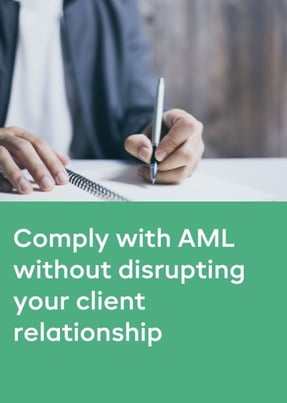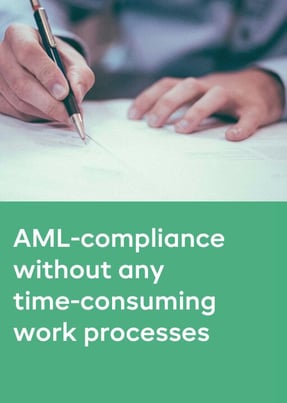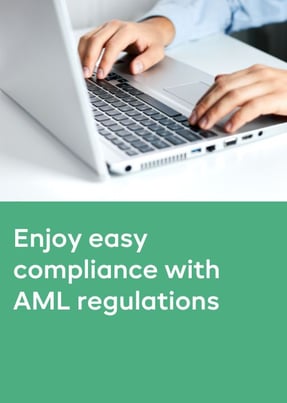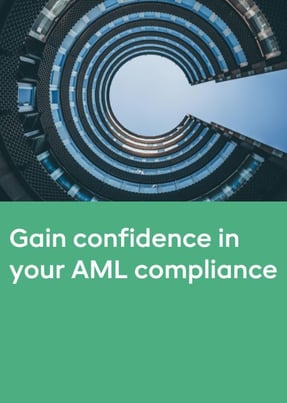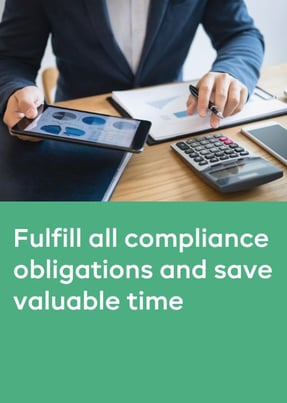- Products
- RegLab for ...
- Knowledge centre
Download the AML glossary >
 Discover the essential AML compliance terminology and gain instant access to a comprehensive guide
Discover the essential AML compliance terminology and gain instant access to a comprehensive guide - The company
Working at RegLab >
There may not be any vacancies that perfectly match your profile, but that does not mean there is no room for someone who can improve RegLab.
- Book a demo
What are pseudo-UBOs and why should you pay more attention to them?
Anyone in the business of AML compliance, legal services or financial business structures will have heard of the term UBO. But are you also familiar with the term pseudo-UBO?
What are (Pseudo-)UBOs?
Let’s start with the basics. UBO stands for Ultimate Beneficial Owner, which refers to the individual who ultimately owns or controls a legal entity (a company, foundation, or association). This is usually someone who directly or indirectly holds more than 25% of the shares or voting rights. A legal entity may have one or more UBOs (or pseudo-UBOs). UBOs must be registered in the UBO register, a requirement stemming from the European Anti-Money Laundering Directive (AMLD5).
If no individual within an organisation holds more than 25% of the ownership interest or exercises effective control, some jurisdictions require the appointment of a so-called pseudo-UBO. While this word may not be used in all national frameworks, the underlying concept exists in many jurisdictions: a natural person in a senior management position is designated as the pseudo ultimate beneficial owner (pseudo-UBO) in the absence of a clear, identifiable owner.
Who qualifies as such depends on the legal structure of the entity. In most cases, it concerns one of the directors or members of the executive board. Appointing a pseudo-UBO is generally seen as a fallback measure and is less common in companies, but more frequently applied in non-profit entities such as foundations and associations.
In countries where a central UBO register exists, it is typically indicated when the registered individual is a management-level UBO rather than a UBO identified through ownership or control. National legislation may require that the identity of this person is verified through reliable sources, such as corporate registries or other official records.
Why are pseudo-UBOs relevant for lawyers, legal professionals, and investment advisors?
You might wonder: “Why should I, as a lawyer or investment advisor, pay attention to this?” The answer is simple: rules and regulations. In recent years, the requirements for identifying UBOs have become stricter, and failing to recognize a (pseudo-)UBO can result in significant legal consequences and financial penalties.
1. Laws and regulations
Legislation aimed at preventing money laundering and terrorist financing (such as the Dutch Wwft) requires you to have insight into the UBO structure of your clients or investors. Failure to comply can result in fines and loss of trust from clients and investors. It is expected that every client is correctly identified.
2. Identification requirement
In legal services, it is mandatory to identify (pseudo-)UBOs. This is an essential step in preventing money laundering and terrorist financing. According to the European Anti-Money Laundering Directive (AMLD5), legal service providers are legally required to thoroughly screen their clients and identify their UBOs. This applies not only to actual UBOs but also to pseudo-UBOs, including directors who have influence over the entity but do not formally hold an ownership interest.
3. Supervision checks
The identification requirement for (pseudo-)UBOs directly impacts supervisory checks. Supervisors monitor compliance with the AML regulations. During these checks, the supervisor assesses whether the firm has correctly identified its clients and (pseudo-)UBOs. An incorrect or incomplete file can lead to financial consequences.
4. Financial risks
It’s not just fines that can harm your firm. The risks of involvement in fraud or criminal activities can have severe financial consequences for your firm or fund. You certainly don’t want your investments or clients to be negatively affected by these hidden structures.
Practical tips to identify pseudo-UBOs
It’s important to have a robust due diligence process to identify pseudo-UBOs. To make it clearer, here are some practical tips:
- Review corporate structures: Carefully examine the layers of companies and who is behind them. This can help uncover suspicious structures.
- Ask questions: Pose critical questions about ownership structures and the source of funds. Don’t forget to discuss statutes and powers of attorney.
- Use screening tools: There are many tools available today that can help analyze UBO structures. Think of our RegLab software.
- Stay alert: By staying alert, conducting thorough research, and collaborating with experts like RegLab, you can ensure your organisation remains safe and AML-compliant. Don’t take risks and always keep the UBO in sight.
- Maintain records: Continuous monitoring can make the difference between receiving a fine or just a warning. Make sure you stay informed about changes in your client management.
RegLab plays an important role in increasing knowledge and awareness around AML. By providing up-to-date files, tools, and training, we help firms be AML-compliant and minimise risks. Whether you’re a lawyer or a fund manager, you can always rely on the expertise of our AML experts.
RegLab
Are you also spending a lot of time on a Know Your Customer (KYC) and Customer Due Diligence (CDD) policy to comply with the AML obligations? Despite the frustrations they generate, CDD principles are becoming increasingly important. RegLab helps organisations comply with the AML quickly, securely and with ease.
Themed file: fully prepared for the supervisor’s audit
This article is part of a series of articles and downloads that will help you get ready for a supervisor visit. The content is based on the frequently asked questions of a supervisor during an audit. Do you want to be 100% AML proof and ready for a visit from the regulator? You can find all frequently asked questions in our knowledge centre.
